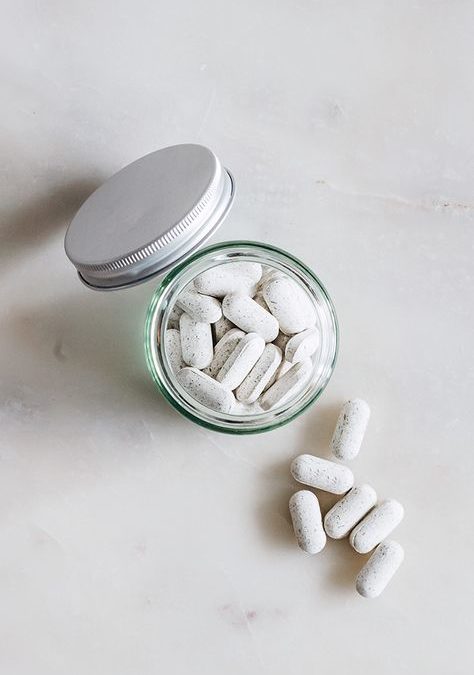At least 50% of adults are deficient in magnesium. Magnesium is a critical mineral involved in over 300 metabolic (how we convert food into energy) functions. Recently studies have shown magnesium is actually involved in 3700 enzymatic reactions. It is the fourth most abundant mineral in the body and because it is involved in SO many reactions, if your magnesium levels are low, your whole body feels it. Several factors contribute to its depletion including sugar, coffee, alcohol, stress, and lack of nutrients in the foods we eat. These are things we are exposed to often and daily, compounding the need to replenish this “relaxing mineral.”
What magnesium does:
- Helps extinguish stress.
- Supports deeper sleep.
- Makes bones stronger.
- Lowers inflammation.
- Keeps muscles healthy.
- Regulates electrolyte balance.
- Improves neural plasticity.
Some signs you may be deficient:
- Poor sleep/insomnia.
- Depression, Anxiety & Irritability.
- High stress.
- Constipation and IBS.
- Muscle cramps (including menstrual cramps) or muscle spasms.
- Headaches & Migraines.
- High Blood Pressure & Heart palpitations.
- Poor memory.
- Photosensitivity & sensitivity to loud noises.
Contributors to its depletion:
- Stress.
- Alcohol.
- Diuretics, including coffee.
- Acid blockers.
- Sugar & processed foods.
- Painkillers.
- Excessive sweating.
- Additional factors: Pregnancy, celiac disease, chronic diarrhea, excessive menstruation, intestinal parasites, hyperthyroidism, cancer, heart failure, bariatric surgery.
Since stress, alcohol and coffee are top contributors to magnesium depletion, it is no surprise +50% of adults are deficient in this crucial mineral.
Best food sources of magnesium:
In general look to incorporate nuts, seeds, greens, beans and grains.
- Seeds: Pumpkin seeds, chia seeds, & sunflower seeds.
- Nuts: almonds, cashews, Brazil nuts, pili nuts, almond, walnuts, hazelnuts & pistachios.
- Greens: Avocado, spinach, Swiss chard, broccoli, kelp & other seaweeds.
- Beans and Grains: beans and lentils, wild rice, buckwheat, quinoa.
In addition to the food sources listed above, both mineral and sea salts contain up to 85 trace minerals, including magnesium. Add these salts to your food and water to increase magnesium intake. I wrote about salting water and importance of electrolytes in this blog post.
Which type of magnesium should you take?
Because there are several kinds of magnesium supplements, it is best to look for chelated. Avoid carbonate, oxide, and gluconate because they are cheap and not well absorbed by the body. Dosing depends on activity, age, musculature etc but, one can take up to 1000 mg daily. I take Biotics Mg-Zyme, 200 mg in the morning and 200-300 mg at night before bed.
There are several types available, but below are the most common.
- Magnesium Citrate – most common because it is inexpensive. Take too much and it will have a laxative effect and can cause diarrhea.
- Magnesium Glycinate – easily absorbed and may have calming properties. It may help reduce anxiety, depression, stress, and insomnia.
- Magnesium sulfate – Take an epsom salt baths and have magnesium absorb into skin. It will soothe sore, achy muscles and relieve stress. Try at night to prepare the body before bed.
- Magnesium Theanate is great for brain health.
Here are some suggested brands which were chosen because nutrients will be more easily absorbed. These supplements also have no added sugars, fillers, or oils: Biotics, Pure, & NOW. Adapt Naturals & Ancient nutrition were developed by functional medicine professionals with focus on better quality ingredients and purer formulations.
Minerals require compliments necessary to perform properly, therefore, supplementing is complex. Magnesium is a Calcium compliment. Magnesium helps the muscles relax and Calcium is a mineral that helps to contract muscles (in addition to supporting bone health.) Both are needed in the right amounts to help you reap their benefits. Selenium & B6 help magnesium absorption as well.
If you have kidney disease, you should check with your doctor about magnesium doses as this mineral can be difficult for your body to process.


